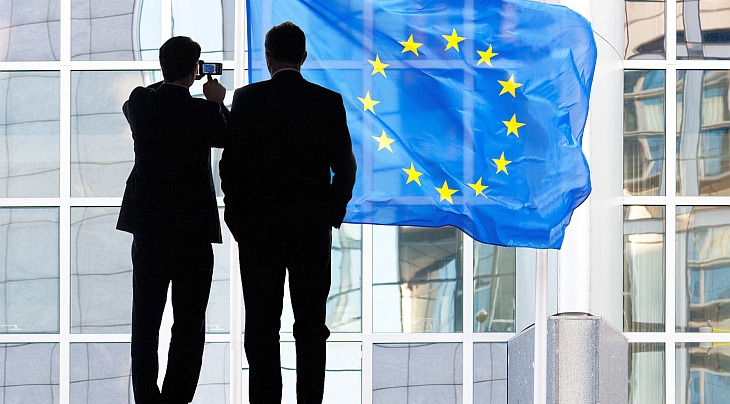European leaders meeting later this week for an EU summit on energy and climate change will discuss proposals allowing energy-rich nations like France and Germany to transfer 10% of CO2 emissions quotas to member states such as Poland, who are struggling to diversify their energy mix, EurActiv France reports.
The EU’s 28 heads of states and government will try to reach agreement on climate and energy policy for 2030 at the EU summit, which takes place in Brussels on Thursday and Friday (23 and 24 October).
Leaders will debate the European Commission’s proposed targets for 2030 to reduce greenhouse gas emissions, ramp up renewable energy and improve energy efficiency across the continent.
The key item on the summit’s agenda will be the transfer of emissions quotas from one country to another
2030 proposals include a 40% greenhouse gas reduction target and a 27% share for renewable energy in the continent’s mix for 2030, as well as a 30% reduction in energy consumption.
Departing from the EU’s existing 2020 energy and climate policy, the Commission proposed that only the CO2 target would be legally binding, but not the renewables one. Debate is still ongoing on whether to make the energy efficiency target legally binding.
But the key item on the summit’s agenda will be the transfer of emissions quotas from one country to another, sources told EurActiv.fr.
The idea is for the richest member states to transfer 10% of their CO2 emissions quotas to the poorest, instead of selling them at auction.
Under this system, countries with a diverse energy mix, like France or Germany, would only sell 90% of their quotas at auction, while Poland and other countries with a carbon-intensive economy would receive the balance for free.
The beneficiary countries would then use the money from the sale of these quotas to invest in their own low-carbon energy mix.
This redistribution mechanism will help to realign the energy performance of member states.
The Visegrad group – the Czech Republic, Hungary, Poland and Slovakia – pushes for a less ambitious CO2 emissions reduction target of 25%, while Sweden is campaigning for a stronger target of 50%. Both France and Germany agree on a target of “at least 40%”.
